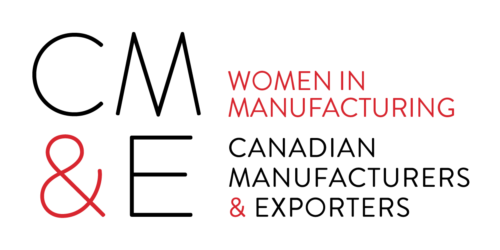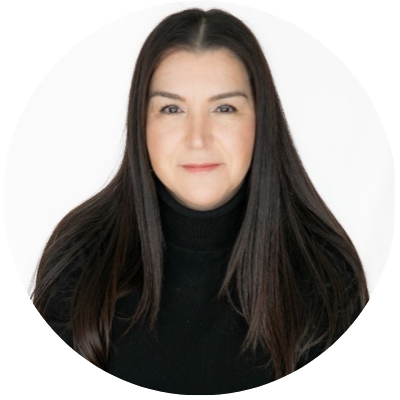HERStory | Susan Bettencourt


Senior Human Resources Manager at Floradale Feed Mill Ltd. (“Floradale”)
Meet Susan Bettencourt, the Senior Human Resources Manager at Floradale Feed Mill Ltd. (“Floradale”), a family owned and operated feed company serving livestock and poultry producers in Ontario. A driven and passionate HR professional in the manufacturing sector, Susan has placed a spotlight on diversity, equity, inclusion, and gender parity, and inspired women to embrace the opportunity to make a difference in manufacturing.
Floradale has recently partnered with People Corporation, a national provider of group benefits and retirement consulting, to help provide employees with an elevated experience in the workplace that supports their total well-being. People Corporation’s Vice President of Enterprise Group Solutions, Colleen Baker, and Benefits Consultant, Taylor Valee, had a chance to sit down with Susan and learn more about her career in the manufacturing sector.
Susan, what initially interested you in the manufacturing industry?
Navigating an industry where women make up only 29 percent of the workforce can be a challenge, but it has also been one of the most rewarding experiences in my career. I’ve always been drawn to the manufacturing industry, fascinated by the processes, attention to detail and quality, and opportunities to problem solve in creative and innovative ways.
I first gained exposure to the manufacturing industry when I was in my early 20’s, working alongside my brother and father at an automotive company. I didn’t know then that a summer job would lead me on the path to where I am today, but when I look back it’s clear that it was an important part of shaping my career.
It’s interesting that summer student positions can introduce us to an occupation we hadn’t really considered before.
What did your career path look like after working at the automotive plant?
Following my introduction to the manufacturing industry, I attended Conestoga College to study Materials Management. I did learn a lot when it came to purchasing and inventory control, however it was very systems oriented. During my education, I came to realize that the part I liked about manufacturing wasn’t the management of parts or machines – it was the people.
After this epiphany, I went back to the automotive company I spent three summers working at and volunteered to mentor with a woman named Judy who was the HR Manager. Judy was one of the few women in the office at the time – the rest were all men. She taught me about recruitment, screening, and the interview process, and how HR could greatly contribute to the organization and shape its direction. Judy may never know the major influence she had on me in life, but it was with her support, leadership, and encouragement that I decided HR was what I wanted to do. I wanted to make an impact in an industry that needed gender parity, where I could make a difference and give women more than just a space in the room, but a seat at the table.
I enrolled at Sheridan College in Oakville in Human Resources Management, a three-year program, and upon graduation I was hired as an HR Coordinator at another automotive manufacturing company that specialized in fuel lines and seat frames for GM and Chrysler. I had the opportunity to work at the generalist capacity recruiting, delivering new hire orientations, supporting health and safety, etc., and truly enjoyed my time there.
After some time, I made the decision to join a large courier services and solutions organization as an HR Consultant, working my way up to Senior HR Business Partner, managing a team of seven and supporting approximately 1800 employees at 22 locations across Ontario. I spent over 16 years there, and now I am happy to have made the move back to manufacturing in the agricultural sector.
As a woman who has worked in the manufacturing industry, you’ve observed and made a lot of positive changes. What would you say to young women who are considering a career in this sector?
I would say that you must be confident in yourself, your decisions, and what you want to accomplish. I’ve found that the more self-assured I am, the more respect I’ve received from colleagues. You also need to practice resilience and get comfortable in dealing with conflicts professionally and tactfully. I’ve taught my girls what hard work looks like, and I’ve tried to show them the moral way of doing things and help them understand what they’re capable of. Problems will arise in any organization and any sector, and it’s important to learn to push for what you believe is right, in a constructive way.
You mentioned you have two daughters; how did you balance parenthood with your successful career?
I’ll be honest, navigating a career alongside raising children is a delicate, orchestrated balance that takes time and energy. Being a mom, my girls will always be my number one, but they also understand my need for a career that challenges me intellectually and allows me to make a positive impact on others. My identity is not solely being a career woman, and it’s not solely being a mother either. It’s a blend of a variety of things. I don’t always get it right, but at the end of the day, my kids know I’m trying, and I’ll always strive to show them that even though there are challenges we have as women in the world, we can overcome those obstacles and become what we want to be.
It must have been quite a different experience moving from a courier service to the agricultural manufacturing sector. What made you decide to switch?
I thoroughly enjoyed my time at my prior company, as I spent over 16 years there. I always thought I might end up back in manufacturing, as I still have that fascination with the product component, as opposed to the service. When the opportunity arose with Floradale, although unfamiliar to me from an agricultural perspective, I loved that I was a part of producing something again and I was excited to make an impact.
Were there any significant obstacles you encountered in your career, or any surprises you didn’t expect?
I suppose I didn’t really expect that there would be times I felt I would have to prove myself more than my male counterpart in past roles. I think HR’s role wasn’t nearly as valued in the past as it is today, and this combined with being female made change difficult at times. With that said, I embraced it as a challenge to work harder, find creative ways to be heard, and I think a lot of women in the manufacturing sector have paved the way for our voices to be heard.
Do you feel accepted and heard in your role now?
Floradale has been amazing since the minute I walked in the door. They have embraced my leadership, and I really do feel like I have a seat at the table. Terry Elliott, the General Manager is such a great business leader and partner, who not only values HR but is an advocate for my ideas on how to make a positive impact for the employees. Having someone like that in your court to help you navigate any tricky waters or provide guidance and recommendations is so important.
It’s wonderful to see that Floradale has embraced you and your ideas, and you’re already making quite a difference. Can you expand on what you have done so far to celebrate and encourage more women and marginalized individuals in the industry?
One of the first initiatives I developed when I came to Floradale was a Diversity and Inclusion strategy that focuses on making our workforce more reflective of our communities, promotes and fosters an inclusive culture, and amplifies best practices to really magnify that impact. Our complement of women at Floradale is quite healthy, and our goal is to continue making progress in our diversity, equity, and inclusion efforts for all groups.
It’s also a pleasure working alongside [Colleen and Taylor], as women in the industry, they understand many of the challenges we face. With our recent partnership with [People Corporation]’s team, our strategy is to make sure all employees feel even more supported from a mental, physical, financial and social perspective.
Thank you, Susan, for sharing your experiences and advice with us today. Is there any other advice you would give women looking to pursue a career in a sector that is largely made up of a male population?
I would say that you should keep breaking that glass ceiling. There will always be stigmas to break but try hard not to pay attention to them. Leverage your skills and passions and be open to challenges, because you can overcome them if you have the confidence in yourself and your abilities.